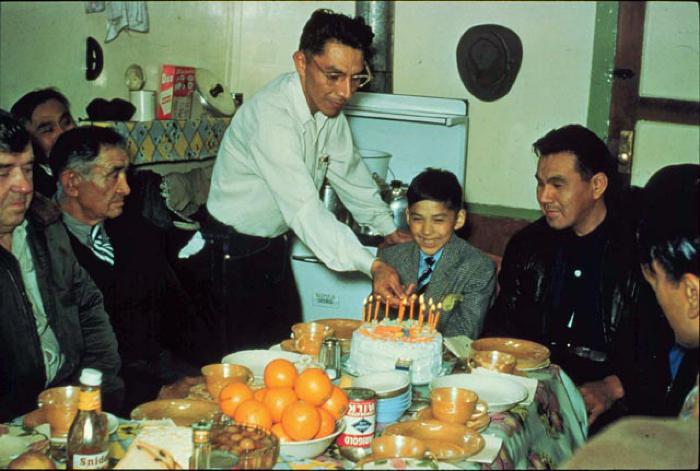Namesake — Aalukaq

In classical Alutiiq society, people accumulated names over their lifetimes, adding new titles to commemorate a deed or reflect a change in their social standing. Many babies were first named for a relative—a namesake—a practice that continues today. In Alutiiq communities, children often bear a parent’s name. Fathers and sons have identical names, followed by Sr. and Jr. However, the eldest child is not always named for a parent. Today, Alutiiq children receive the name of a relative they resemble. Thus, a third son might be named for his father, or a girl for her grandmother.
Alutiiq people began adopting Russian names in the early decades of the nineteenth century as they joined the Orthodox Church. These names often came from a baptismal sponsor. Today, many Alutiiq babies receive an orthodox saint’s name eight days after birth. Parents choose the name of a saint who was born, baptized, martyred, or canonized near their baby’s date of birth, and the saint’s commemoration day becomes another birthday. For example, the parents of the late Elder Larry Matfay recorded his name day, April 10, the commemoration of Saint Hillarion, as his official birthday, not March 22, the date of his biological birth.
It was once traditional to host a party on your name day, inviting friends to your home for food, celebration, and reflection on the life of your saint. At such parties, the celebrant might read about the life of his or her namesake saint or sing the saint’s feast day hymn. Name day celebrations continue to be popular in some families, although some families have replaced them with secular birthday parties.
